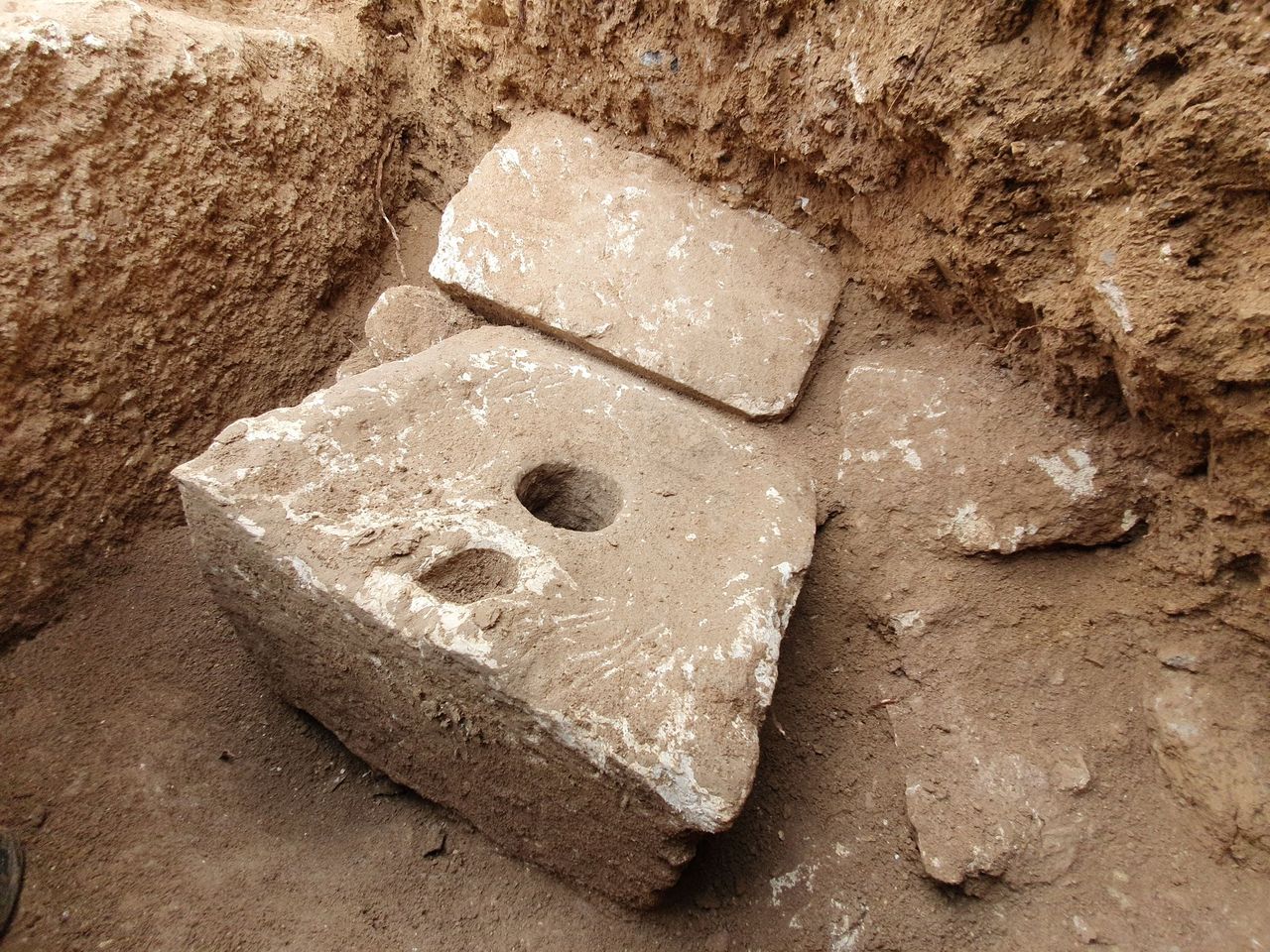A rare 2,700-year-old luxury toilet found in Jerusalem
It is a rare find, as thousands of years ago pooping in toilets was a luxury only for the elite.

Archaeologists recently discovered a 2,700-year-old private toilet inside the remains of an ancient royal estate in Jerusalem. It is a rare find, as thousands of years ago pooping in toilets was a luxury only for the elite.
Private bathrooms were previously "found in only a very few locations in Israel and Jerusalem," Yaakov Billig, an archaeologist and director of the excavation on behalf of the Israel Antiquities Authority, said in a YouTube video. "This is a very rare find because this is something that only the rich people had."
The toilet is carved out of limestone, with a comfy seat and a hole in the middle, "so whoever is sitting there would be very comfortable," Billig added. The toilet, which was situated above a septic tank, was found inside a rectangular cabin that would have served as the ancient bathroom.
Related: In photos: Experience ancient Jerusalem's splendor with virtual-reality app
The bathroom also held 30 to 40 bowls, Billig told Haaretz. He speculated that the bowls may have been used to hold air freshener, in the form of a pleasant-smelling oil or incense.
The archaeologists collected samples of animal bones and pottery, as well as soil found in the septic tank below, hoping to learn about the lifestyles, diets and diseases of the time.
Within the settlement, the archaeologists also discovered ornamented stones that were carved for various purposes such as for stone capitals — small detailed pieces of stone that form the tops of columns — or window frames and railings, Billig said in the video. Nearby the toilet, Billig and his team discovered evidence of a garden filled with ornamental trees, fruit trees and aquatic plants.
Sign up for the Live Science daily newsletter now
Get the world’s most fascinating discoveries delivered straight to your inbox.
All of these relics help the researchers recreate the picture of an "extensive and lush" mansion, according to the statement. Archaeologists first discovered the remains of the ancient mansion on the Armon Hanatziv promenade in Jerusalem two years ago, and excavations are continuing. It was "probably a palace of one of the kings of the Judean Kingdom," Billig said in the video.
This isn't the first time archaeologists have been interested in the bathroom habits of ancient people.
The archaeological record holds some hints of what our ancestors would have used as toilet paper thousands of years before rolls of Scott and Cottenelles lined Target shelves. It turns out, ancient people had a wide variety of solutions, from corn cobs to snow, for wiping their bums, Live Science previously reported.
Originally published on Live Science.

Yasemin is a staff writer at Live Science, covering health, neuroscience and biology. Her work has appeared in Scientific American, Science and the San Jose Mercury News. She has a bachelor's degree in biomedical engineering from the University of Connecticut and a graduate certificate in science communication from the University of California, Santa Cruz.










